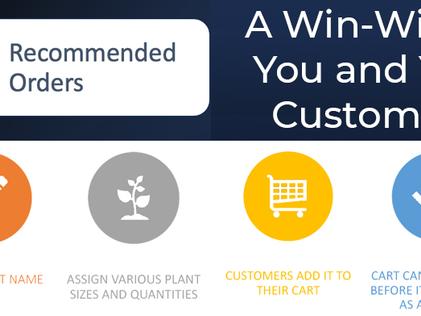
The Difference between a Mobile App and Mobile-Friendly Website
And, which is the way to go?
The general goal of a phone app and a mobile-friendly site is the same; make it easy for people to easily interact with your company with their smartphone.

What's an App? (Short answer)
A mobile app (short for application) is a program that is developed for your business but must be downloaded and installed onto a user's mobile device. This requires your customer to know about and actively seek out your app.
What's a Mobile-Friendly Site? (Short answer)
A mobile-friendly website is simply a website adapted to tablet and smartphone formats. A common name for this is 'responsive website' meaning that the layout of the website automatically responds to the size of the screen it is being displayed on so that is it most easily used on the given screen size.
App Advantages
- Apps allow businesses to send out push and/or in-app notifications to users who agree to receive them. 'Pushing' relevant information and promotions to a customer base that has demonstrated interest in your products or services by actively downloading your app can be quite valuable. However, it is worth noting that many users end up opting out of receiving the notifications, so don't 'drown' your customers in pushes.
- A significant portion of your information and some of your functionality can be accessed or used offline. While most app functions, like accessing maps and making in-app purchases or calls, only work online, the basic information such as location, hours, plant, and product libraries can be accessible even without cell service.
- Creating, publishing, publicizing, and maintaining apps required more specialized resources, is more time-consuming and costly than a mobile website.
- If you want to reach both Apple and Android users, your app will need to be developed for both platforms and submitted and approved in both the Apple App Store and the Google Play Store. The guidelines for app store acceptance change regularly, therefore you will need to make sure your app stays in compliance.
- Most businesses require a website and can't rely on an app only. Therefore both will need to be developed, paid for, and maintained.
- When you change information, pricing, business logic, etc. you will need to do it for both your app and your website.
- Apps are not a 'Field of Dreams.' You will need to market it and create a compelling reason for users to go to the effort of finding your app, downloading it, and using it.
- Users can't easily share information from the app with others.
- All users of computers, tablets, and smartphones can easily access and use a responsive website.
- Users only need to go to your website to interact with you online; no need to download an app
- Responsive websites help improve your search engine results. If someone initiates their search from a mobile device, search engines prioritize responsive sites over non-responsive sites that have similar content in the search results. As roughly 60% of all internet searches are done from mobile devices having a responsive website is now crucial.
- Users can easily share content from your website with others by sending the URL. Responsive Website Disadvantages
- It is more difficult to push information to your customers and prospects. However, this is becoming easier and more cost-effective with online solutions.
App Disadvantages
Responsive Website Advantages
Responsive Website Disdvantages
No Need to Invest in an App
The functionality of apps and responsive websites have overlapping functionality such as one-click calling, social sharing, e-commerce, and navigation. However, apps require a download, while responsive websites are available to all and will allow users to connect with your business from anywhere, without additional marketing effort and expenses needed to point them to your app.
Responsive websites are also easier to maintain than apps. When you need to update a piece of information, all you have to do is change it in your website content management system and it will automatically make the changes across all device types, regardless of the operating system.
Latest Posts
Latest Posts
-
July 16, 2025Timothy Howard
-
June 19, 2025Timothy Howard
-
April 25, 2025Glenda Howard
